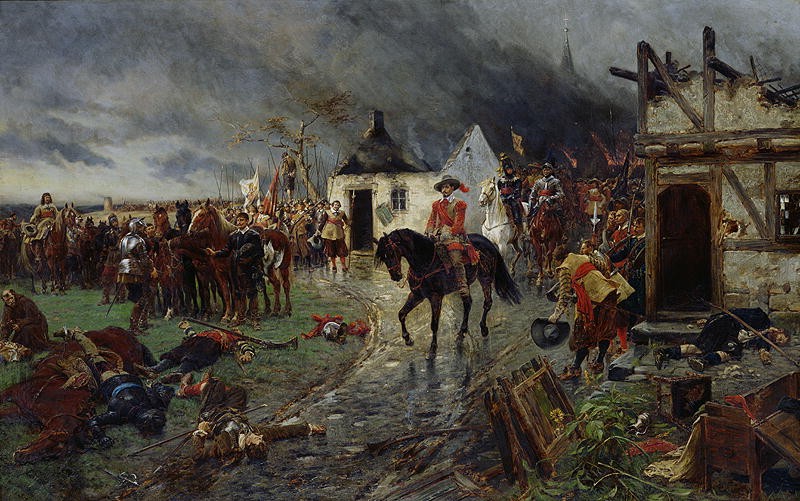Giving thanks in a world of horrors
During the groaning evil of the Thirty Years War, a pastor wrote the hymn “Now thank we all our God.”

At Calw, the pastor saw a woman gnawing the raw flesh off a dead horse on which a hungry dog and some ravens were also feeding...In Rhineland [the city magistrates] watched the graveyards against marauders who sold the flesh of the newly buried for food ....Acorns, goats' skins, grass, were all cooked in Alsace; cats, dogs, and rats were sold in the market at Worms....
Cicely Veronica Wedgwood's The Thirty Years War is loaded with passages equally repugnant. She found it difficult, I'm sure, to describe the scene without documenting the bloody horrors all around.
Between 1618 and 1648, political and religious hatred teamed up to create a war in which the Austrians and Swedes and just about anyone else looking for power on the continent took turns thrashing the very life out of the German people and countryside.
To those who lived through it, the steel wheels of that war must have seemed to grind on endlessly. So many thousands deserted farms and homes for protection in the old walled-in cities that, soon enough, there was no room.
At Strassburg, Wedgwood says, the living shut their windows to death groans just outside. In winter, people stepped over the dead bodies all over the streets. Finally, when the city knew it could do no more, the magistrates threw out 35,000 refugees to terror and death outside the walls.
Spring came in long days of warm rains that kept the earth moist and rich for disease that flourished in the hot summer sun that followed. Plagues swarmed through the streets in gusts of warm wind. Outside the gates, law and order crumbled into dystopian chaos as men formed marauding, outlaw gangs who murdered each other for food.
Sometime during the final years of that war, Martin Rinkart, a preacher in his hometown of Ellenberg, Saxony, found himself, not by choice I’m sure, in the heart of all that horror, thick in the swamp of life-draining disease. Rinkart, the only clergyman left in Ellenberg, held funerals for up to fifty people per day. One day, that number came to include his own wife.
But sometime during those years—during the groaning persistence of the Thirty Years War’s evil—Rinkart sat down and wrote a hymn that a thousand churches in a hundred different countries will sing sometime before Thanksgiving. It’s a stately, magnificent tribute to the God he loved and worshiped, even though the world around him had seemingly descended into madness.
Thanksgiving—imagine that. Thanksgiving in the middle of all of that death.
“Now thank we all our God,” Rinkart wrote, his own nostrils full of the stench all around. In spite of the horror, the man was still counting his blessings and offering thanks.
Some stories have to be told and retold and retold again. Then again, some simply have to be sung.
Originally posted at Stuff in the Basement




